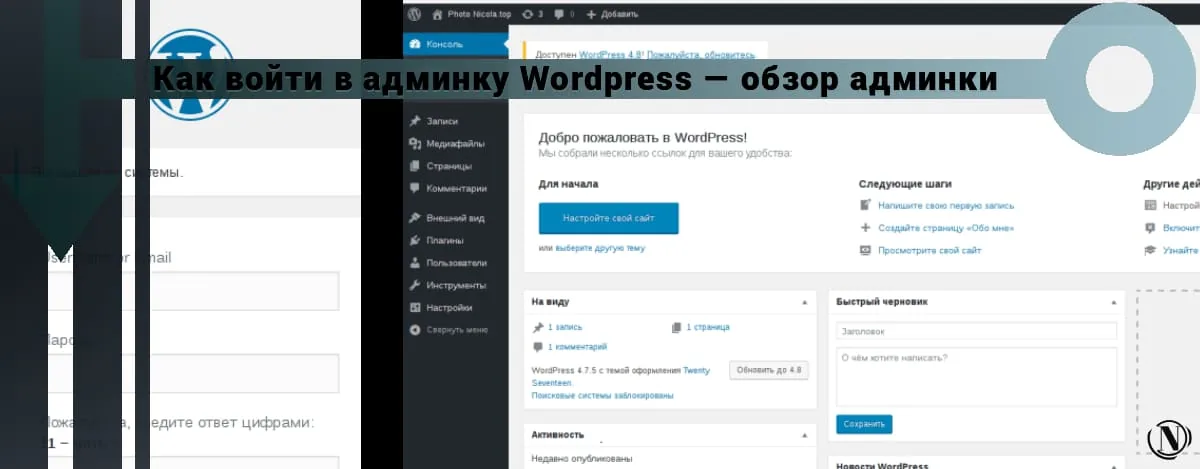Website monetization main mistakes - webmaster be aware

As a site owner or publisher, you want your site to be profitable 24 hours a day, even while you sleep. This is why many have come to rely on practices such as website monetization. Today, website monetization includes much morethan showing ads is a measure to promote the site. Aimed at attracting a larger audience to the site.
Changing online consumer habits have given way to the emergence of new platforms and solutions, which has made the strategies and process of monetizing a site much more difficult than it used to be.
To help publishers better navigate the world of website monetization, I've compiled a list of six common mistakes that are often made and how to fix them:
The content of the article:
- Misunderstanding of the target audience
- Poor quality content is a negative
- Excess advertising - look for a middle ground
- Advertising is all you have
- Ads that don't stand out
- Do not use customer data
- Website monetization: strategy
- FAQ
1. Misunderstanding of the target audience - failed site monetization

To monetize the project, you need to "get" your target audience. After all, you can't know what products or offers your audience will be interested in if you don't know them or think you know them better than you do.
If your monetization tactic isn't working as expected, take a step back and re-familiarize your site visitors. Dive into analytics to see who visits your site and when. Even if you ask yourself a few basic questions, it will help:
- What device are they using?
- What pages are visited the most?
- What content is popular on the site?
This data can help you better understand audience preferences. You can then work on tailoring your monetization plan to fit your target audience profile.
2. Poor quality content is a minus

There is nothing worse than bad content that distracts visitors from the site and hinders success. Monetizing the site in this case does not promise you anything. The site should provide a useful user experience, which depends on the quality of the content.
Of course, the nature of the content will depend on the purpose of the site, but it should reflect the relevant information and instructions needed to provide value. Whether you're an e-commerce site selling a niche product, or perhaps you're running a website purely for entertainment purposes, make sure you write useful content. This will create trust among the target audience.
Each word or image on the site should be aimed at getting interested, helping the visitor find what he is looking for. If your site is likely to fall victim to poor quality content, take a step back and take the time to seriously evaluate what you're creating. If you're having a hard time being objective about your own site, ask a friend or colleague for an honest review.
The content may need to be updated to increase the chances of success in this area.
3. Too much advertising - look for the sweet spot

While ads are a component of any website monetization plan, you need to consider how many ads you want to run in order to achieve the required number of impressions to achieve results. Too few ads and you may not notice visitor conversions. Too many, and you may experience negative ads, annoy your online audience and keep them from visiting your site.
By re-exposing the same messages to the same people, they can even block all incoming ads. And if the visitor becomes one of the 30% people using ad blockers, then future ads will decline.
This is just one of the reasons why native advertising is a great monetization tactic. Native ads are designed to match the look and feel of the site so they are not intrusive or annoying. Plus, they get steeper conversion rates than other forms of online advertising.
4. Advertising is all you have
The conventional wisdom is that the average person is exposed to 4,000 advertisements a day. Even if the true number is not that high, it is undeniable today that people see a lot of advertisements on the Internet.
Without exaggerating the importance of advertising in a site's monetization strategy, there are many other ways that publishers can make money online. From sponsorships to content recommendations, creating your own digital assets to sell and more, there are tons of tactics to expand your monetization horizons.
5. Ads that don't stand out
I have already discussed the need to show the right amount of advertising on the site. And we know that the unprofitable nature of native advertising leads to great results. Having said that, if you are going to monetize a site with ads, make sure the audience can see them. Don't be shy - inconspicuous advertising will not be effective.
Instead, ads should be designed to grab attention and draw the viewer to the CTA. There are many ways to do this. For example, ads that use colors similar to your site may blend in too much with the site's content.
The solution would be to use a contrasting color for the CTA, drawing attention to the eye.
6. Don't use customer data in your strategy

If you collect customer data such as logins or subscriber lists, you can increase your monetization strategy by using the data in new and different ways. For example, you can create a list of email addresses of visitors who have previously visited your site and send out seasonal promotions.
If you want to use website visitor data, there are two steps:
- First see what data you collect, how you collect it, and then see if you can enable it.
- Second, think creatively about how you can use the data you collect to create more monetization opportunities.
This doesn't just apply to sites with traffic or big data owners, as even small sites can use visitor data to increase site revenue.
Website monetization: strategy
Another option for site owners is the publisher solution, which covers many of the basics you need to monetize.
- native advertising. Unobtrusive advertising with a natural increase in the conversion rate;
- Various types of ads: including streaming, interstitial, pop-up, regular and third-party;
- Organic Discovery: Recommend pages on your site to increase traffic;
- Smart Feed: an endless stream of content that matches the interests of the target audience;
- Reports in real time.
Online advertising is not what it used to be. Display ads are no longer important (native ads topped display in total spend last year), and more people than ever are suffering from ad fatigue.
Every website owner should be looking for new ways to expand their monetization activities by creating new revenue streams that will help them sleep soundly at night while ad revenue continues to grow.
FAQ
Q: What is a mistake when monetizing a site?
A: Misunderstanding of the target audience. This may result in you creating content or placing ads that visitors will not be interested in. The result will be low traffic and income.
Q: What other factor can negatively affect the monetization of the site?
A: Poor quality content is a minus. Content should be useful to the target audience. If the content does not meet these criteria, then visitors will quickly leave the site, which will negatively affect monetization.
Q: What else should be considered when monetizing a site?
A: Too much advertising - look for the middle ground. Too many ads can alienate visitors and harm the site's reputation. But the lack of advertising will not allow you to make money on the site. Look for a balance and understand how many ads can be placed so as not to alienate visitors.
Q: What role does advertising play in website monetization?
A: Advertising is all you have. Most sites earn their income from ads. But it is important to understand that advertising should be relevant to the target audience and not irritate them. Only then will it make a profit.
Q: How to create ads that will work for your site?
A: Ads that don't stand out won't work for your site. It should be noticeable, attractive and relevant to your target audience. Don't forget to design ads in accordance with the design of your site and do not overload them with redundant information.
Q: What's wrong with not using customer data when monetizing a site?
A: By not using your customer data, you may be missing out on many opportunities to monetize your site. Analyzing data about your customers' behavior will help you understand what products and services they will be interested in, which will allow you to make more accurate offers and maximize profits. Please be aware of the privacy policy and only use customer data with their permission.
Q: Is there an optimal website monetization strategy?
A: There is no single correct strategy for monetizing a site, because each site is unique and has its own target audience. However, there are general principles that will help you choose the best monetization strategy. For example, analyzing your target audience, creating unique and useful content, placing relevant ads, leveraging customer data, and monitoring changes in the online marketing world.
Q: How can I increase the income from website monetization?
A: There are several ways to increase the income from website monetization. One of them is to increase traffic on the site. The more visitors on your site, the more opportunities for earning. Another way is to improve the quality of the content, which will lead to an increase in the attraction of visitors and their retention on the site. It is also important to constantly monitor the changes in the world of online marketing and take advantage of new opportunities for monetization, such as connecting to affiliate programs or selling digital goods.
Q: How to choose the right affiliate program for website monetization?
A: When choosing an affiliate program for site monetization, several factors should be taken into account, such as the reputation of the affiliate, commission rates, terms of cooperation, the level of competition in this niche, as well as the compliance of goods and services with the target audience. It is important to conduct market research, evaluate the advantages and disadvantages of different affiliate programs and choose the right one for the site.
Q: Is it possible to monetize a site without using ads?
A: Yes, you can monetize your site without using ads. Some monetization methods that do not require the use of ads include selling your own digital goods, selling physical goods through an online store, joining affiliate programs, running paid webinars or online courses, and paying subscriptions to great content.
Q: What ad format on the site is effective for monetization?
A: There is no single ad format that fits all sites and all types of businesses. The ad format should be adapted to the target audience and the type of content on the site. Some popular ad formats include banner ads, contextual ads, native ads, video ads, and social media ads.
Reading this article:
- SEO Basics - 9 Ways to Improve Your Website Ranking in 2022-2023
- Website promotion - website promotion in search engines
Thanks for reading: ✔️ SEO HELPER | NICOLA.TOP









